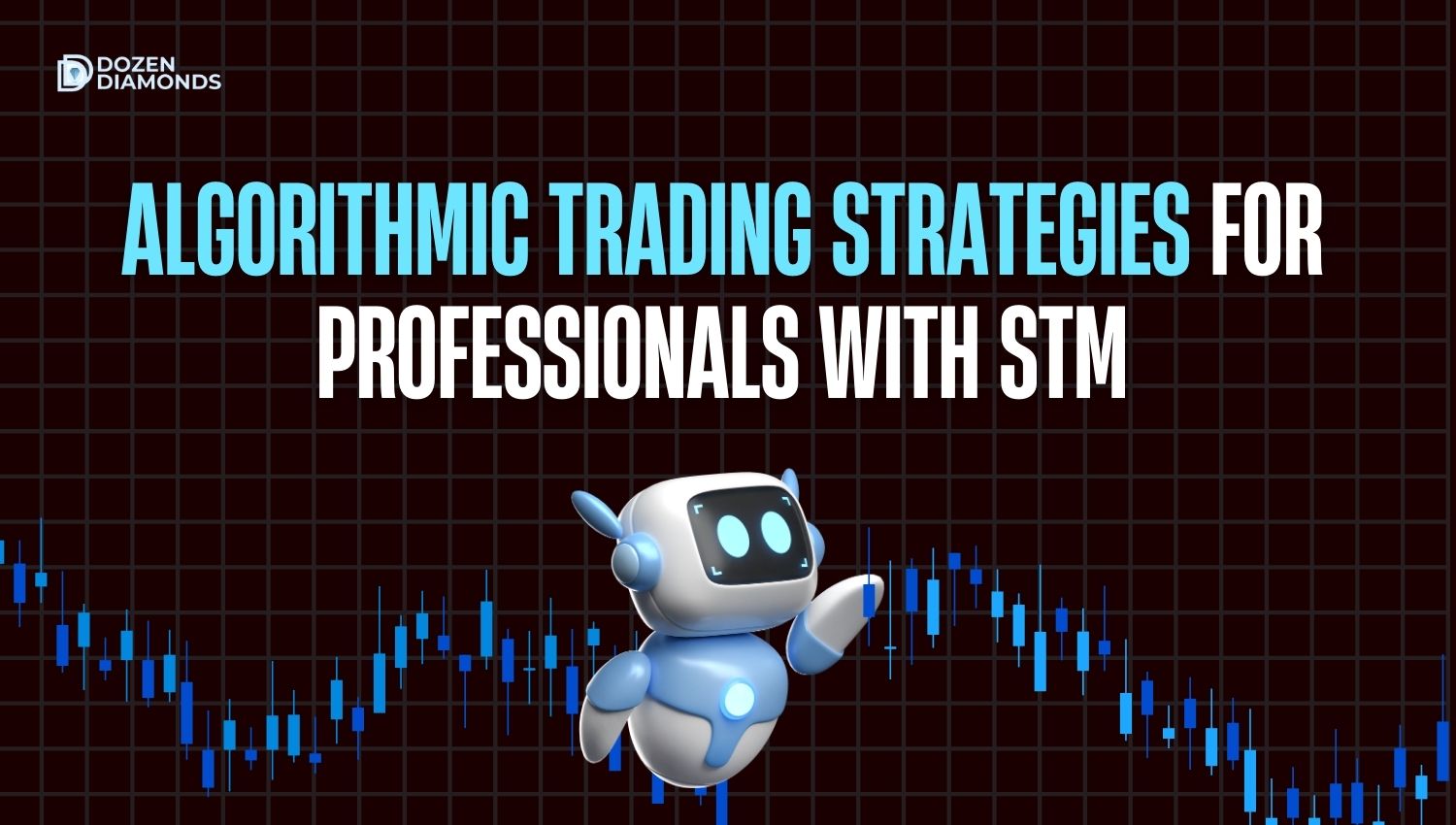Algorithmic Trading Strategies for Professionals

Table of Contents
Introduction – Why Algorithmic Trading Strategies for Professionals Matter?
Here’s what you’ll get from this article:
-
- A breakdown of proven algorithmic trading strategies for professionals.
- How the Stressless Trading Method (STM) outperforms traditional algo strategies.
- Practical examples showing how STM prevents common pitfalls professionals face.
The Evolution of Algorithmic Trading in Professional Finance
Algorithmic trading has evolved from simple rule-based execution systems into complex AI-driven platforms.
Professionals use it for:
- High-frequency trading (HFT).
- Risk management and hedging.
- Multi-strategy execution across equities, commodities, and derivatives.
But with evolution comes complexity—too many black-box systems lead to opacity, missed signals, and high stress for traders.
Common Pitfalls Professionals Face with Traditional Algo Strategies
Most algo strategies fail because they:
- 1. Overfit backtesting data – great in theory, weak in practice.
- 2. Rely on multi-strategy layering – increasing risks during volatility.
- 3. Lack transparency – traders can’t see why trades happen.
- 4. Encourage over trading – increasing transaction costs.
Day trading scenario: A professional using an HFT model sees 20 trades executed in 30 minutes during a volatile market, resulting in high costs and no net profit.
How the Stressless Trading Method (STM) Transforms Algorithmic Trading
The Stressless Trading Method (STM) is built to address these failures:
- White-box transparency – traders see every decision-making logic.
- Stressless automation – no panic, greed, or overconfidence.
- Loss-recovery system – unique to STM, it builds back losses while continuing growth.
- Consistent monthly cashflow – designed to optimize long-term performance.
Scenario: Instead of chasing multiple trades during volatility, STM executes its single pre-programmed stressless cycle. Even if a dip occurs, STM starts automatically recovering your loss while generating consistent income.
STM vs. Traditional Algorithmic Trading Strategies
| No | Feature | Traditional Algo Strategies | Stressless Trading Method (STM) |
|---|---|---|---|
| 1 | Transparency | Mostly black-box | Fully white-box |
| 2 | Trading Frequency | High-frequency, costly | Optimized cycles |
| 3 | Loss Recovery | Rarely addressed | Built-in mechanism |
| 4 | Emotional Control | Limited | Fully automated & detached |
| 5 | Consistency | Varies | Designed for monthly stability |
Key Benefits of STM for Professional Traders
- Reduced stress – no emotional decision-making.
- Improved efficiency – fewer trades, lower costs.
- Predictable cashflow – STM aims for monthly consistency.
- Loss recovery built-in – unique advantage.
Scenario: A portfolio manager dealing with a sudden market crash sees other algos stop out with huge losses. STM, however, continues through its cycle, enabling recovery and restoring to portfolio growth.
What Other Algo Strategies Miss (and How STM Fills the Gap)
- They miss loss recovery mechanisms – STM is built on it.
- They lack white-box visibility – STM explains every move.
- They fail under panic conditions – STM thrives here.
Scenario: During a market depression phase, traditional algos stop functioning. STM keeps working, offering professionals the confidence they need.
The Future of Professional Algorithmic Trading with STM
The future isn’t about faster trades; it’s about smarter, stressless trades.
STM represents the next generation of algorithmic trading strategies for professionals—designed for transparency, long-term growth, and freedom from stress.
Conclusion + Next Steps
Algorithmic trading strategies for professionals are evolving, but very few address the core professional pain points: stress, lack of transparency, and failure to recover losses. The Stressless Trading Method (STM) solves all three.
Next Step: Learn how STM can integrate into your professional trading setup.
Attend the webinar to explore the Stressless Trading Method in action.
👉 Join the Stressless Wealth Community: https://chat.whatsapp.com/B79yCAm61fOH00Ip2DEWjd
❓ FAQs on Algorithmic Trading Strategies for Professionals
Traditional algo strategies often overfit backtesting data, lack transparency, encourage overtrading, and fail during volatile markets. This can result in high costs, stress, and inconsistent performance.
STM provides white-box transparency, stressless automation, built-in loss recovery, and consistent monthly cashflow, ensuring professional traders execute smarter, disciplined trades without emotional stress.
Unlike HFT systems that execute numerous trades in short periods (often increasing costs), STM uses optimized, pre-programmed cycles. It focuses on stressless execution, loss recovery, and predictable returns, rather than chasing every market fluctuation.
Yes. STM’s built-in loss recovery mechanism allows trades to rebuild capital systematically during downturns, while continuing to generate consistent income—something most traditional algo strategies don’t offer.
White-box transparency ensures every trade and decision is visible and explainable.
Professionals can understand the strategy logic, monitor risk, and maintain control—unlike black-box systems where trades occur without insight.
